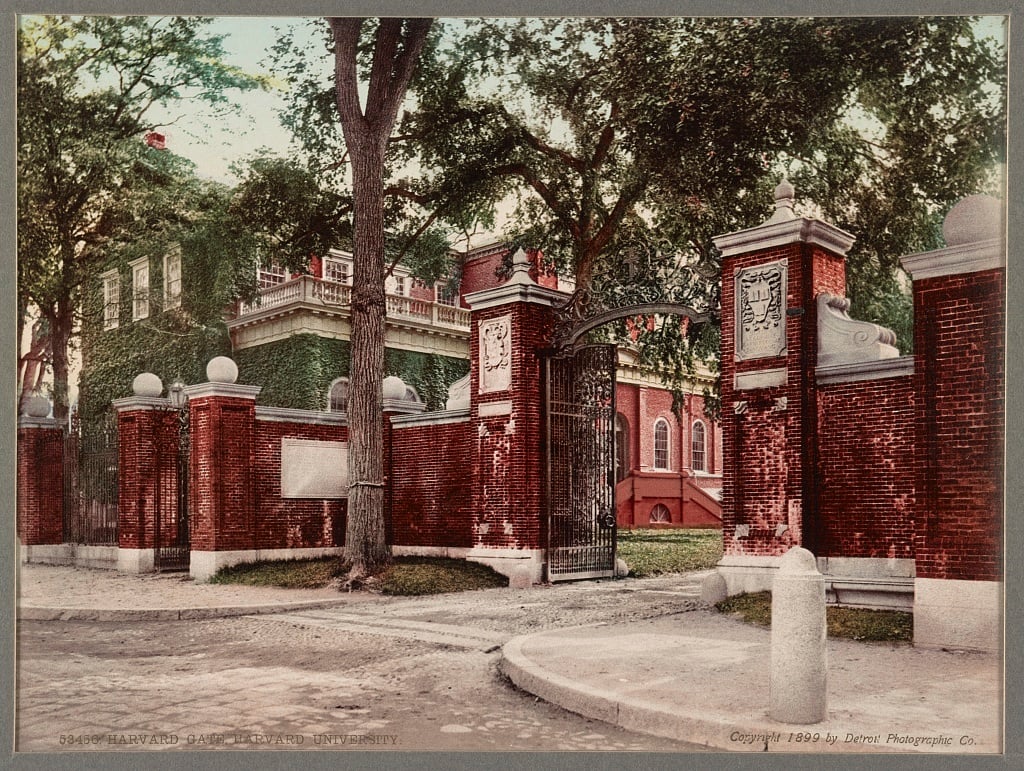If you remember the 1990s, you remember lots of lawyer jokes. Lawyers were dumb, dishonest, and little better than grifters. Right now, professors are the ones who are taking it on the chin. Maybe you have seen the clip circulating where J.D. Vance, quoting Nixon, says “professors are the enemy.” It’s from 2021, but Vance has not changed his tune. And he is not the only person singing it. All kinds of people who never step onto college campuses have regular complaints about college professors. They are lazy, indoctrinating, overpaid, idiotic, etc., etc. (Many of these people also complain regularly about college students.)
This is a time when many people are vocally skeptical about higher education. They are not wrong that higher education is often very expensive. Many students are somewhat directionless when they take out their massive loans. College campuses often do have weird politics. Many contrarians take up residence on college grounds. There is no university in America that reflects any one person’s ideal, though all kinds of people have ideas about what college should be.
But one feature of college that seems to annoy many people is, in fact, a vital good: the number of people who spend a lot of time studying irrelevant things. You have, no doubt, heard a joke about “underwater basketweaving.” A recently trending instance of this was the criticism received by a new PhD, after proudly posting on social media about completing her viva. According to Inside HigherEd, Ally Louks’s post was “viewed more than 116 million times since it was published…after some accounts seized upon the title of her dissertation, ‘Olfactory Ethics: The politics of smell in modern and contemporary prose,’ as evidence of impenetrable ‘woke’ academic jargon. Some argued her thesis abstract strengthened the case for defunding the humanities.” People weren’t happy just criticizing her work without reading it; some on X went so far as to issue rape threats.
The criticism of Louks and her viva concerned higher education as a “bastion of the left,” but it also contained something more fundamental. Her project seems decidedly non-utilitarian. It is hard for a layperson to imagine a direct application for the new knowledge produced by this viva. We can assume that plenty of people who would never be directly offensive or confrontational on social media about the topic still rolled their eyes at the idea of Louks studying “the politics of smell.” What is the point of such a project?
For those who do not have a deep affection for the liberal arts, the distinction between the free arts and the frivolous arts may be unclear or non-existent. There is, at times, an unbelievable amount of jargon in academic writing. Dissertation titles especially can tend toward being academically twee. Quite a bit of academic writing concerns topics which almost never concern the public. Some topics may be genuinely unserious even from a generous perspective. Critics of the humanities are not empty-handed.
Yet there is a distinction between the free arts and the frivolous arts, one which matters. The liberal arts have historically been known as the “arts of a free people” precisely because they are not connected to utility. They concern the parts of our minds and lives that are not centered around needs or labor, especially labor for others. They are meant to transcend the everyday, not just help lighten the load of everyday tasks. A topic like “Olfactory Ethics” may not seem very useful, but usefulness is not always the best measure of value.
People who scoff at the idea of learning without practical application might also be appalled by our second president, John Adams, who said “I must study politics and war that my sons may have liberty to study mathematics and philosophy. My sons ought to study mathematics and philosophy, geography, natural history, naval architecture, navigation, commerce and agriculture in order to give their children a right to study painting, poetry, music, architecture, statuary, tapestry, and porcelain.” Tapestry! Porcelain! Forget what this country is coming to, what is it coming from? With Founders like these…
Marilynne Robinson has taken up the topic of hostility toward the liberal arts in her essay “What are We Doing Here?” We have become obsessed with the idea of economic competition and mastering skills that will be useful in a changing economy. Though we are descended from forefathers who loved the liberal arts, and we are in “a country richer than any they could have imagined…we are endlessly told we must cede that humane freedom to a very unlikely promise of employability.” Though we are rich, we say we cannot “afford” luxuries like the humanities if we want to keep our economic edge. Some critics of higher education seem intent on colleges being little more than factories for making good workers. The humanities become a problem because, as Robinson puts it, “the humanities do not provide ideal helots, economically speaking.” Frustration with the lack of obvious utility in learning is certainly one problem that some people have with higher education and the professors that populate it.
Yet the objections to much of higher education go beyond arguments about utility. Even if you think it is silly to spend time studying “olfactory ethics,” why would you care enough to get upset about someone else doing it? People do frivolous things every day and are most often not met with outrage. What is it about the persistence of the liberal arts that so many people find unsettling?
We can begin by asking: Why would anyone pursue deeper knowledge of olfactory ethics? It must be, to some extent, for love. The existence of that viva testifies to a love of learning which prompted years of effort to better understand something most people have never heard referenced. Another way to consider the increase in eye-rolling about PhDs, professors, and college, is to consider our cultural view of work and professions broadly.
Even though critics of colleges seem to want them to be all about work, work itself is increasingly suspect. The idea of learning and work motivated by love is disruptive in our day and age. It dispels the idea of an AI-fueled utopia in which no one works. That proposed utopia is what people are trying to sell us, to get us to adopt certain technologies and ways of life. According to some dreamers and forecasters, we should only work to the extent that we must, and the goal is for no one in society to have to work at all.
The liberal arts and humanities have no place in this fantasy. The laborious effort to study and understand a particular question—even one relating to smell!—is work fit for humans (after all, AI may spit out answers about such questions, but it can never understand them). The effort that goes into trying to answer a particular question—about smell or about eighteenth-century pamphleteers or about Neolithic migration—is human work. And our society is increasingly shifting toward the non-human. The persistence of the utility-defying liberal arts demonstrates that even if the technology-fueled utopia could be achieved, no doubt some fool would mess it up, by wanting to write a dissertation about Utopia and foolishly spending his own time reading and writing, for no particular extrinsic reward, and not using AI, when he could be watching TikTok videos instead.
The idea of work driven by love may be the most suspect thing of all. In his essay “Feminism, the Body, and the Machine,” Wendell Berry writes, “another decent possibility my critics implicitly deny is that of work as a gift. . . They assume—and this is the orthodox assumption of the industrial economy—that the only help worth giving is not given at all, but sold. Love, friendship, neighborliness, compassion, duty—what are they?” Someone who spends years studying “Olfactory Ethics” is driven by love, not money. The culture laughs at people who work for love.
While higher education is catching the heat at the moment—some earned, some unearned—some other field may be next. Perhaps professors are just on a very long list of professions which will be denigrated in turn. A topic like “olfactory ethics” validates the notion of work for its own sake or for the sake of the one doing the work. In The Unsettling of America, Wendell Berry writes: “We have made it our overriding ambition to escape work, and as a consequence we have debased work until it is only fit to escape from. We have debased the products of work and have been, in turn, debased by them.” We can see this not only in the ways in which some jobs have changed, but in the ways in which we talk about various jobs.
Consider a few other professions which we have collectively devalued. We all hate “bureaucracy” and “bureaucrats.” There is now little dignity in being a government employee, though we rely on them for all kinds of aspects of our common life. Those who would like to privatize the postal system have attempted to make your postal workers seem inept and archaic (even though they are sometimes the exact same person as your Amazon delivery person, who is allegedly more modern and efficient). Whatever you think of police behavior, the amount of negative attention they have received in recent years has dramatically affected public perceptions of their work and it has worsened their morale and sometimes their working conditions and sometimes their work, and it has been no boon to the people they police, either.
Love of work is out of step with a utilitarian focus on outcomes, but so is work for the love of others. Many of the positions which have been most denigrated involve service to the public or the community. We can discredit these professions and then begin to ignore or eliminate them. Farmers fit into this crowd, as well. We can all ponder the consequences of these trends in the long term, with all public-serving professions reduced to punchlines. Perhaps professions which suggest service of the common good or cling to notions of non-economic value are targeted precisely because of their nature. An underlying assumption in the dream of the technology-managed fantasy future seems to be that we will not need to care for others or maybe need others at all.
But many people whose work does not serve the common good or the public are also in danger. Now we are being told that AI will eliminate the need for screenwriters and directors, graphic designers, and all kinds of artists. Many coding positions will be eliminated. Soon on the chopping block: customer service, financial analysts, market researchers, human resources, engineering, etc. Some are saying we won’t need many doctors, either. The list goes on.
Whatever technology awaits us in the future, it will certainly reshape work and the economy. But ideas about work and the potential of technology reshape our lives before they become (and even if they never become) reality. In the 1990s, everyone had a lawyer joke. It did not end law as a career. But it can be difficult now to be idealistic about law. In certain crowds, you might be shy to say that you are a lawyer. Is that good for law and lawyers? Is that good for non-lawyers? As we continue to debase more professions, what will anyone want to do? Or take pride in doing well?
Beyond the societal consequences, we can return to Wendell Berry for an even bigger, more existential, question: “But is work something we have a right to escape? And can we ever escape it with impunity? We are probably the first entire people ever to think so. All the ancient wisdom that has come down to us counsels otherwise. It tells us that work is necessary to us, as much a part of our condition as morality; that good work is our salvation and our joy, that shoddy or dishonest or self-serving work is our curse and our doom.”
Humans are designed for work, and we do best when we find our vocations. How can we encourage each other in our vocations if we spend our time denigrating each other’s professions and debasing the very notion of work? Do we think we will escape the office and the classroom and then fully apply ourselves elsewhere? Our cultural trends are fighting against the notion of applying ourselves anywhere. AI will replace us at work, and appliances will replace us at home. And despite all the time and labor saved, we will still be too expensive to maintain according to people who only believe in the law of competition. Marilynne Robinson asked “what are we doing here?” We can also ask “where are we going?”
We have set our sights on a vision of the future, which may or may not be a fantasy, but which we are in a rush to reach. In our haste we have created confusion about ends and means. We focus on the ends we want—political, economic, etc.—and in a race to achieve those, we degrade and devalue the means or work necessary to sustain them. We want whatever will reduce or eliminate effort on our part. In doing so, we forget that for many human goods, the means are not always separable from the ends. As we chip away at work and the value of work, especially work for the common good, we will not find ourselves liberated from necessity and newly empowered. It is more likely that we will be more discouraged in our everyday reality, which will continue to include work for most of us but with even less sense of purpose and idealism. We will also be more disconnected, because work helps us find our place in the world outside of ourselves.
The attacks on higher education are many things, operating on many levels. They are, in part, ideological. They also reveal widespread opposition to things which are seemingly not work-related or obviously economically valuable. Work on “olfactory ethics” seems to defy the logic of the market as determiner of destiny. But the attacks on higher education are also part of a broader trend, which devalues work itself, especially work motivated by love (which seems doubly illogical). The consequences of these discourses go far beyond college campuses.
Image Via: PICRYL












